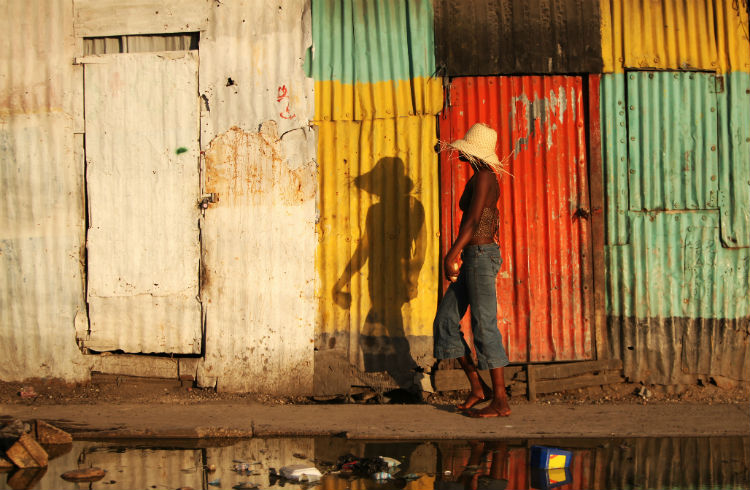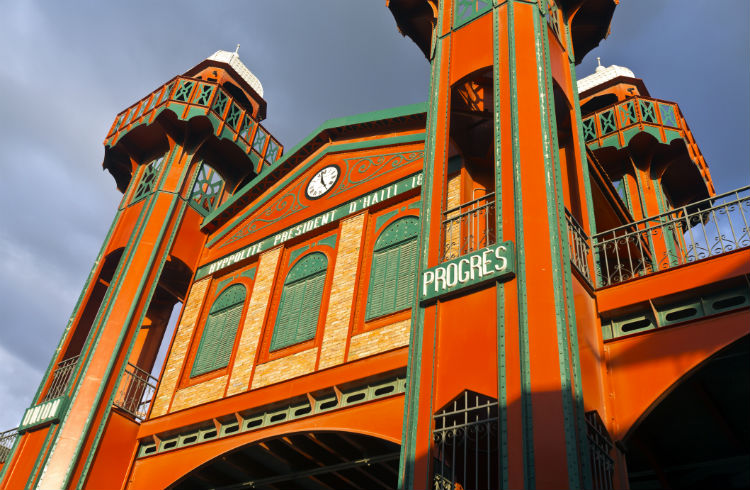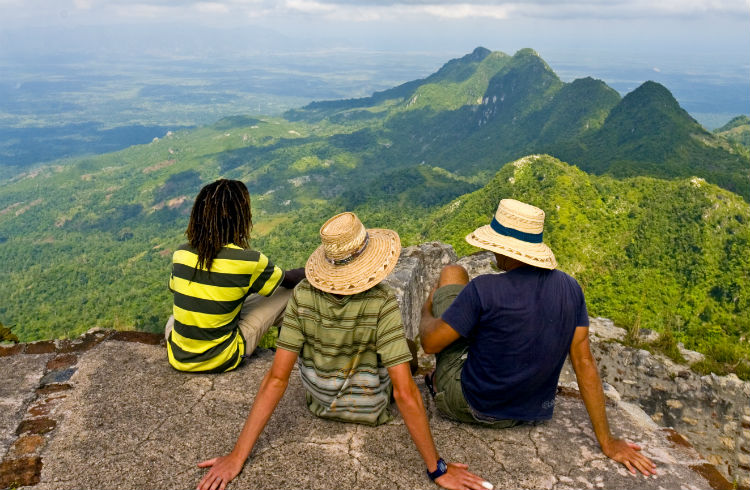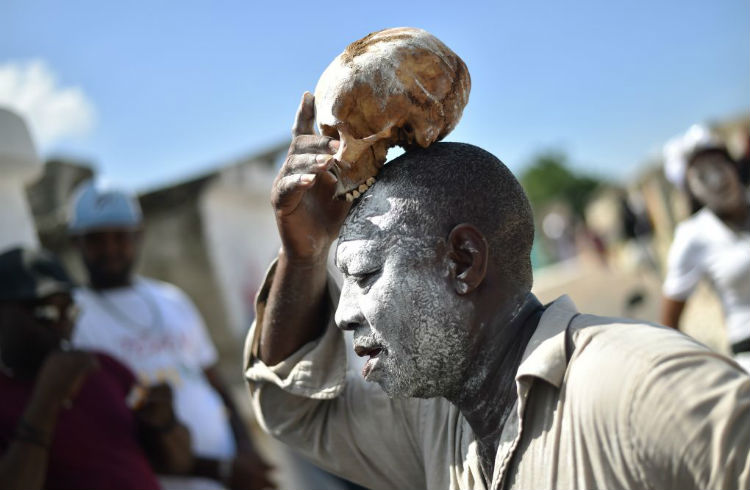Congressman Saying Hati Citizens Cannot Go Back Because It Is a Crappy Place
Haiti has a reputation for serious crime, but how safe is Haiti for travelers? Our travel safety expert, Phil Sylvester, shares his tips.
 Photo © Getty Images/1001Nights
Photo © Getty Images/1001Nights Haiti is a tropical island destination in the Caribbean. It occupies the western side of an island where it shares a border with the Dominican Republic.
With beautiful beaches, mountains, impressive waterfalls, a history that includes being the first nation to throw off slavery and colonization, and a unique Caribbean culture, Haiti is an intriguing destination with a dark past.
But, just how safe is Haiti for travelers? Here are our top safety tips and a number of things you need to know before you go.
- Haiti's dark past
- The good news about safety in Haiti
- The bad news about safety in Haiti
- Crime in Haiti
- Public transport safety
- Areas to avoid
- Safety during Carnival
- Civil unrest
- What do other travelers say?
- Safety tips for travelers to Haiti
Haiti's dark past
Haiti is one of the poorest nations in the western hemisphere and was made poorer by a massive earthquake in 2010. The nation almost collapsed under the weight of the tragedy. There was desperation everywhere. For a while, evil was unchecked.
Gangs roamed the broken streets of Port-au-Prince, and the only visitors were relief workers. It's been suggested that some 10,000 aid organizations were involved in the 2010 recovery process.
But instead of fixing Haiti's problems, the relief effort made matters worse. The UN is blamed for starting a cholera outbreak, and aid organizations botched the job of stopping it, so 500,000 more Haitians died.
The aid effort is accused of perpetrating its own kind of exploitation (including the Oxfam sex scandal), causing the country to become what this author describes as "The NGO Republic of Haiti", operating in the interests of donors instead of Haitians.
A few years back, we described the safety situation as "beyond horrific" for independent travelers who were thinking of visiting the country. It wasn't the right time or place for anyone to explore.
The good news about safety in Haiti
No doubt, Haiti is a beautiful country and many travelers have weighed up the risks and explored the country.
I spoke to Stephen Bennet, a travel blogger for Uncommon Caribbean, who travels to Haiti regularly.
"It is most definitely possible to experience and enjoy all that this marvelous country has to offer," he told me.
"However, Haiti is not the kind of place where anyone can just rent a car and get around on their own. For most travelers, one of the local tour operators is a must."
He recommended two. If you want to know who they are, read Stephen's blog and drop him a message.

The bad news about safety in Haiti
Then I got an opinion that was the polar opposite of Stephen's.
"In short, no, it is not safe," Burke Files told me emphatically. "I am a private investigator who has traveled to Haiti a number of times. I hired a security person to accompany me who spoke the local version of French, and we still had problems."
He told me he takes precautions and carries very little cash when out and about in Haiti, but while walking around a crowded Port-au-Prince market was aware that the few dollars he did have had just been pickpocketed.
Seconds later, another man armed with a knife demanded he hand over his money.
Burke told me, "I pointed to the first guy and said sure, if you can get it from that guy, you can have it."
I guess the nature of his work, and the way he needs to travel, Burke often draws attention. But equally, he's a savvy and careful traveler with one eye always on his safety.
Crime in Haiti
The devastating earthquake in 2010 resulted in the deaths of 150,000 people. Life expectancy is low, a quarter of the population has access to safe drinking water, less than half the population is literate and the majority of Haitians live in extreme poverty.
There is a high level of crime in Haiti. Some areas are worse than others, but there is a very real danger of violent crime everywhere in Haiti, and this includes assault, armed robbery, murder, kidnapping, and rape. The exception is Labadee, an area leased by a cruise ship company.
Serious violent crime can and does happen often.
While it is true that the rate of kidnapping has declined since it reached a peak in 2006, it's still high. A resurgence of kidnappings in Haiti has led the US government to raise its travel advisory to Level 4 "Do Not Travel" in March 2020. Other violent crimes including carjackings and robberies, carried out mostly by armed criminal gangs.
The motivation for kidnapping in Haiti tends to be financial, and kidnappers don't discriminate based on age, gender, or nationality, or race and often target children.
Many kidnap victims who are returned, report being beaten, tortured, and sexually abused.
Kidnapping risks in Haiti are not the same as in South America for example, and measures that are adequate elsewhere have been proven inadequate for Haiti.
Public transport safety
Criminals have been known to watch travelers arriving at the airport, follow them and then attack. Be highly vigilant when withdrawing money; always use an ATM or bank inside a hotel.
Do not use public transport including "tap-taps", where violent crime often occurs. Public transport has been the location of numerous stabbings, robberies and kidnappings.
High crime areas to avoid in Haiti
There are some safe hotels and markets in Port-au-Prince and in other locations in Haiti. However, it's best not to walk around Port-au-Prince alone, especially at night. Avoid the high-crime areas of Carrefour, Martissant, Cite Soleil, the Delmas road area, and Petionville.
Certain roads should also be avoided. The urban route Nationale #1, airport road (Boulevard Toussaint L'Ouverture) and the connecting roads to the New ("American") Road via Route Nationale #1 have been the locations of numerous incidents of violent crime including murder, robbery and carjacking.
Safety during Carnival
Crime rates often increase during the holiday season of Christmas and Carnival, when large numbers of people are on the streets and many are drunk, high and carrying weapons.
The traffic snarls to a stop, large group violence occurs at the drop of a hat and there is little sense to any of it. Street musicians roam around and start up impromptu gatherings called "Rah-rahs". These often start off as quite a fun experience with people dancing and singing in the street, but they often escalate to violence and destruction.
It is very difficult to tell as an outsider whether or not the Rah-rah is affiliated with a political movement or a drug gang. As rival drug gangs and political groups are prone to open shoot-outs on the street, this can be a major problem.
Travelers have been killed when stopping to listen and participate in one of these events.

Political instability and chaos in Haiti
The major cause of the high crime rate is political instability. On 7 July 2021, PresidentJovenel Moïse was shot and killed in his private residence inPort-au-Prince. The alleged killers were reported to bea group of 12 mercenaries, including two US-Haitian citizens and some Colombians. There are a number of unanswered questions and the assassination has thrown the country into political turmoil as two interim prime ministers and a provisional president jostle for position.
Chaos, protests and demonstrations occur regularly in Haiti, sometimes turning violent with little to no warning.
If you see a large crowd gathering, remain calm and leave the area quickly, avoiding confrontations along the way. The same rule applies in general if you see large crowds or roadblocks. While you may be tempted to wander over to see what is happening, but the best advice is to leave the area.
What do other travelers have to say?
Gary Arndt wrote about Haiti for G Adventures.
"While it is true the earthquake was devastating, Haitians are a proud people who don't see themselves as objects of pity," he wrote in 2015.
"Visit Haiti for the sake of visiting Haiti, as you would any other country in the region. Haitians are a welcoming people and supporting the tourism sector is one of the best things that can happen to the economy here."
G Adventures offers small group tours to Haiti, and it's a reputable company that does its due diligence.
Lonely Planet's Paul Clammer also encourages escorted or guided travel to Haiti and, in August 2017, wrote, "Haiti is far less violent a country than neighboring Dominican Republic or Jamaica, both of which host vibrant tourist industries.
We'd advise keeping away from political demonstrations (as you would in many countries), but instead, heed the number of adventure and package-tour operators now returning to the country. Haiti is a country more than ready to welcome tourists looking for the next travel frontier."
And the last word from Stephen at Uncommon Caribbean, just so you get the message that "escorted" or "guided" travel is the safest option:
"Haiti still has a lot of problems, as recent events have shown. But, traveling there is not unlike traveling to other poor countries/destinations with established escorted tour programs."

Safety tips for travelers to Haiti
- Avoid hurricane season, which falls between June until the end of November
- Make very sure you have adequate security arrangements while in Haiti. If you're staying in a private residence, make sure there is a trustworthy full-time security guard
- Avoid using public transport
- Ask accommodation staff to call a taxi or arrange a driver to take you where you need to go
- If possible, travel with a reliable tour guide or tour operator
- Be very careful at all times with your valuables, and don't flash your cash, your phone or your camera
- Leave your jewelry at home, and don't dress to impress
- Chat with locals about where to go and where not to go.
By ,
World Nomads Contributor - Sun, 1 Mar 2020
You can buy at home or while traveling, and claim online from anywhere in the world. With 150+ adventure activities covered and 24/7 emergency assistance.
Related articles
Congressman Saying Hati Citizens Cannot Go Back Because It Is a Crappy Place
Source: https://www.worldnomads.com/travel-safety/caribbean/haiti/haiti-high-crime-and-chaos